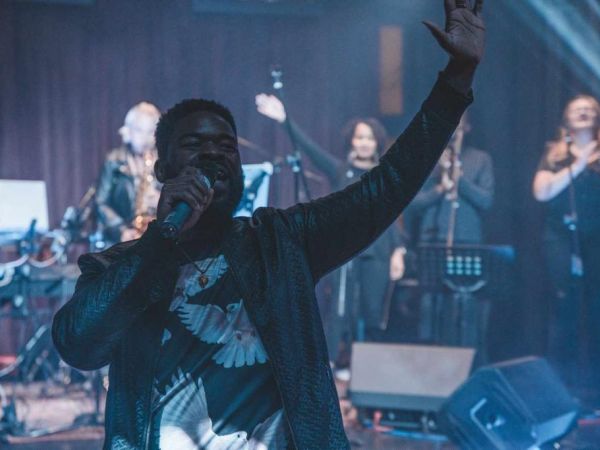
Brandon Harris
Doctor of Ministry (D.Min.) Student in the Traditional Leadership Cohort
Master of Divinity | Howard University School of Divinity, 2013
Bachelor of Arts in Music | Morgan State University, 2009
Tell us about your current ministry placement. Why are you passionate about that work?
My current ministry context represents a shift from traditional pastoral roles to a specialized, consultancy-based approach. After previously serving as an executive and campus pastor, I relocated to launch a church. However, the onset of the pandemic prompted me to pause those plans, offering a valuable period of discernment regarding the direction of my pastoral ministry.
This period of reflection led me to pursue a ministry path focused on consultancy, where I support other leaders and congregations in navigating complex challenges and achieving their goals. I am passionate about this work because it allows me to use my skills and experiences to empower others, fostering growth and resilience in diverse ministry settings.
Why did you choose to join the D.Min. program at Duke Divinity School?
My decision to join the program stems from a deep desire to serve and lead more effectively within my ministry context. I am passionate about theological research, transformative leadership, and service, and pursuing an advanced degree at a leading research institution like Duke will be instrumental in achieving these goals. I am eager to engage in a rigorous course of study alongside a cohort of dedicated scholars and to benefit from the instruction of distinguished faculty and other experts in the field.
Duke Divinity’s resources, accessible across the more comprehensive university, will provide invaluable support for my theological research, enriching my academic and spiritual growth.
Is there an area of study you are interested in focusing on during the program or for your final project? Why is that important to you?
I am particularly interested in exploring how pastors and ministry leaders can effectively adapt to the multifaceted challenges and opportunities in today’s evolving ecclesiastical landscape. This era presents uncharted territory, yet we remain committed to making disciples and sharing the gospel. To fulfill this mission, I believe it’s essential to reimagine the church's role beyond traditional physical spaces. I am passionate about encouraging more seminarians and ministry leaders to consider entering roles in diverse sectors—such as local government, business, nonprofit organizations, healthcare, and education—where they can embody their faith in impactful ways.
This focus is essential to me because extending our influence into these various spheres will strengthen communities and create new avenues for living out and communicating the gospel. It’s a calling to serve in ways that transcend the conventional church setting and engage with the world in a more holistic, transformative manner.
What are some of the unique challenges that you’ve faced in ministry that surprised you? How are you hoping the D.Min. program will help you face those challenges?
In 2018, I moved to North Carolina, intending to launch a church. However, the onset of the pandemic led to an unexpected pause in that journey, creating a period of reflection and discernment about the future of my pastoral work. Ultimately, I chose not to re-enter full-time pastoral ministry at this time, a decision that has presented three unique and sometimes challenging leadership dynamics, which have also impacted my work as a consultant and spiritual leadership coach:
- Shifting from direct leadership to equipping others: Adapting to a role focused on empowering others rather than leading directly has required a different mindset and skill set, as well as patience and trust in the capabilities of those I mentor.
- Navigating ambiguity and uncertainty in my new role: With my transition into a different role, I’ve faced moments of uncertainty that have challenged my resilience and adaptability, underscoring the need for clarity in vision and purpose.
- Establishing authority and trust in a ne role: Building credibility and trust in this fresh capacity has taken time. I am continually learning to lead with authority while remaining approachable and authentic.
The D.Min. program will provide me with new insights, resources, and strategies to navigate these unique challenges, allowing me to grow as a leader who can guide others with wisdom and compassion, even amid uncertainty.
How has this program improved your skills for your leadership position so far?
The D.Min. program at Duke Divinity School has significantly enriched my leadership skills. Collaborating with colleagues deeply engaged in pastoral work has provided invaluable perspectives, even as our contexts vary. Despite these differences, we share common challenges in 21st-century ministry as we pursue a shared mission.
The stimulating dialogues with cohort members and the dynamic lectures and readings from distinguished faculty have already offered me profound insights that I am confident will continue throughout the program. This academically rigorous and spiritually nourishing journey has deepened my commitment to authenticity and impactful leadership. I desire to be an effective, sincere, and unique presence in ministry, and this program has only strengthened my resolve to lead with purpose and integrity.

